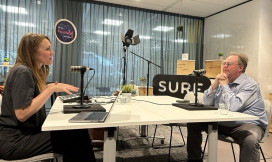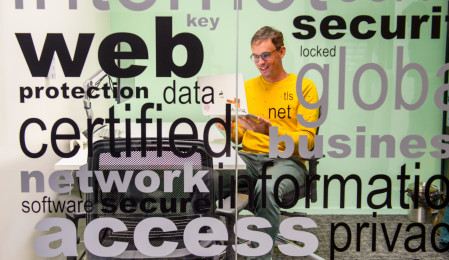Public values
Within education and research, we work together to create a secure digital environment. How do we safeguard autonomy, justice and humanity in a world of increasing digitalisation and vendor dependence? Public values guide us and help us make the right decisions. In what way are these values intertwined with SURF's activities?

The dependence on one dominant tech supplier for communication and data storage is raising more and more questions in education and research. How do you keep control of your data? What alternatives are there? And what does that require from institutions?

Digital transition has been a central theme throughout Alexandra van Huffelen’s career. Now, as president of the Executive Board of Radboud University Nijmegen, she is committed to digital autonomy and the development of the region.

Story





